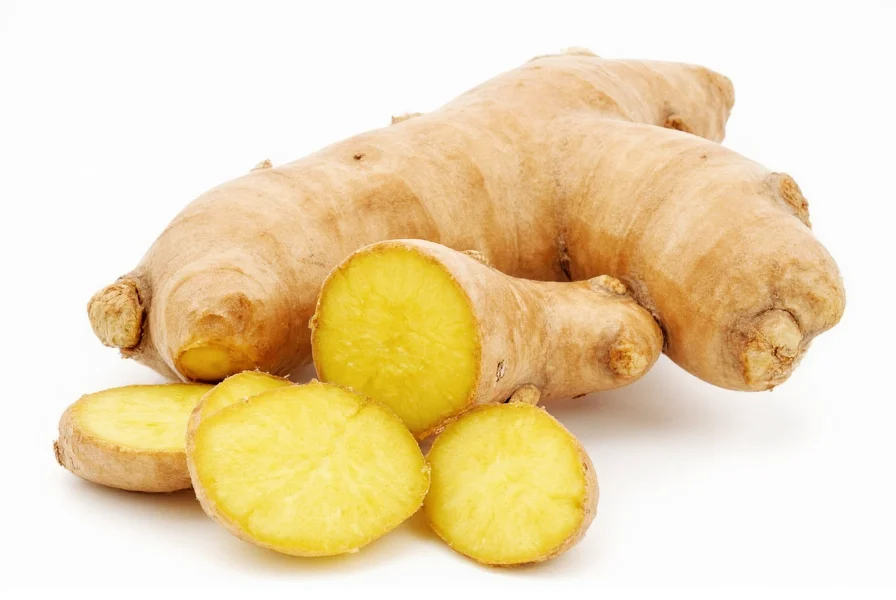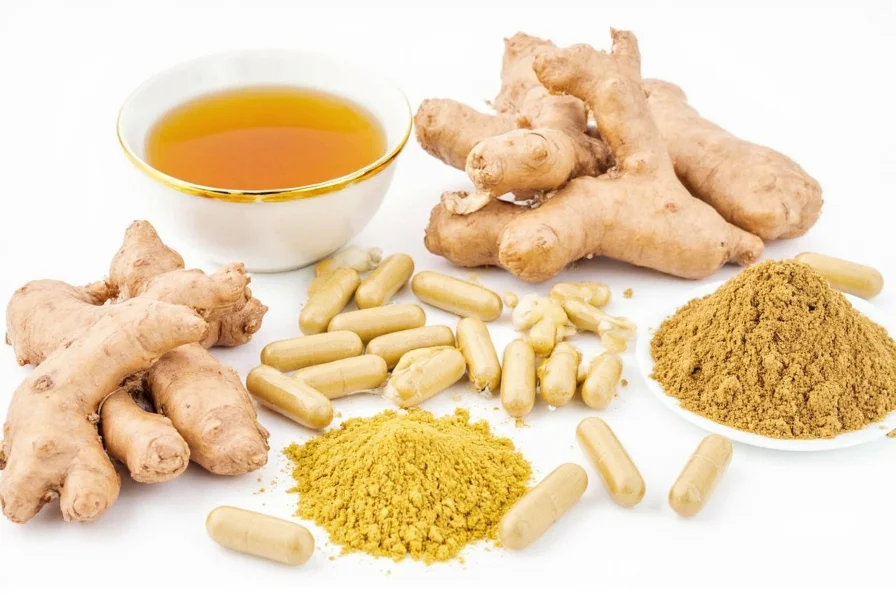Ginger has been used for thousands of years across various cultures for both culinary and medicinal purposes. This knotted rhizome contains powerful bioactive compounds, particularly gingerol, which gives it most of its impressive health properties. Modern research continues to validate many of the traditional uses of this versatile plant.
Science-Backed Health Benefits of Ginger
Multiple clinical studies have demonstrated ginger's effectiveness for specific health concerns. Unlike many wellness trends that lack scientific support, ginger has substantial research behind its benefits.
Nausea and Motion Sickness Relief
Ginger stands out as one of the most effective natural remedies for various forms of nausea. Research shows ginger can significantly reduce:
- Morning sickness during pregnancy (studies show 1g daily reduces symptoms)
- Post-operative nausea
- Chemotherapy-induced nausea
- Sea sickness and motion sickness
A comprehensive 2020 review published in Nutrients analyzed 12 clinical trials and concluded that ginger supplementation effectively reduced nausea severity across multiple conditions. The typical effective dose ranges from 1-1.5 grams of ginger powder daily.
Anti-Inflammatory Properties
Ginger's active compounds, especially gingerols and shogaols, demonstrate significant anti-inflammatory effects. These properties make ginger potentially beneficial for:
| Condition | Research Findings | Effective Dosage |
|---|---|---|
| Osteoarthritis | Multiple studies show reduced pain and stiffness comparable to ibuprofen | 500mg-1g daily for 3-12 weeks |
| Rheumatoid arthritis | Moderate evidence for reducing joint pain and swelling | 500mg twice daily |
| Muscle soreness | 2g daily reduces exercise-induced muscle pain by 25% | 2g daily |
Digestive Health Support
Is ginger good for digestion? Research suggests yes. Ginger accelerates gastric emptying, which can relieve bloating and discomfort. A study in the World Journal of Gastroenterology found that 1.2g of ginger powder taken before meals reduced functional dyspepsia symptoms by speeding stomach emptying by 25%.
Ginger also shows promise for:
- Reducing intestinal cramping
- Alleviating symptoms of irritable bowel syndrome (IBS)
- Supporting gut motility
Nutritional Profile of Ginger
While typically consumed in small amounts, ginger contains valuable nutrients. One tablespoon (about 6g) of fresh ginger provides:
- Approximately 5 calories
- 0.1g protein
- 1.1g carbohydrates
- 0.2g fiber
- Trace amounts of vitamin C, magnesium, and potassium
The real value comes from its bioactive compounds rather than macronutrients. Ginger contains over 400 different compounds, with gingerols being the most pharmacologically active.
Potential Side Effects and Considerations
While ginger is safe for most people, some individuals may experience:
- Mild heartburn or gastric irritation (especially at higher doses)
- Increased bleeding risk (due to blood-thinning properties)
- Lowered blood sugar levels
- Allergic reactions (rare)
Who Should Limit or Avoid Ginger
Certain populations should exercise caution with ginger consumption:
- Pregnant women: While generally safe for morning sickness, consult a healthcare provider before regular use
- Individuals on blood thinners: Ginger may increase bleeding risk when combined with medications like warfarin
- People with gallstones: Ginger may increase bile production
- Those scheduled for surgery: Discontinue ginger at least one week before procedures

How to Incorporate Ginger Into Your Diet
Looking for practical ways to enjoy ginger's benefits? Consider these evidence-based approaches:
Ginger Tea for Nausea Relief
One of the most effective methods for quick nausea relief. To prepare:
- Peel and slice 1-2 inches of fresh ginger
- Boil in 2 cups of water for 10-15 minutes
- Strain and add lemon or honey to taste
- Drink 1-3 times daily as needed
Daily Ginger Consumption Guidelines
Research suggests these amounts provide benefits without significant risk:
- General wellness: 1/2 to 1 teaspoon of grated ginger daily
- Nausea relief: 1-1.5g ginger powder or 2-4g fresh ginger
- Inflammation reduction: 500mg-1g ginger extract twice daily
Remember that fresh ginger contains more active compounds than dried or powdered forms. For maximum benefit, use fresh whenever possible.

Ginger vs. Similar Remedies
How does ginger compare to other common natural remedies?
| Remedy | Best For | Advantages Over Ginger | Disadvantages Compared to Ginger |
|---|---|---|---|
| Ginger | Nausea, inflammation, digestion | May cause heartburn in sensitive individuals | |
| Peppermint | IBS, digestive spasms | Less effective for nausea and inflammation | |
| Turmeric | Chronic inflammation, joint pain | Less effective for nausea; requires black pepper for absorption |
Final Assessment: Is Ginger Good for You?
The scientific consensus confirms that ginger is good for most people when consumed in appropriate amounts. Its benefits for nausea, inflammation, and digestion are well-supported by research, making it one of the most evidence-backed natural remedies available.
However, like any bioactive compound, ginger isn't universally beneficial for everyone. Individual responses vary, and certain medical conditions or medications may require limiting ginger intake. As with any dietary change, consult your healthcare provider if you have specific health concerns.











 浙公网安备
33010002000092号
浙公网安备
33010002000092号 浙B2-20120091-4
浙B2-20120091-4